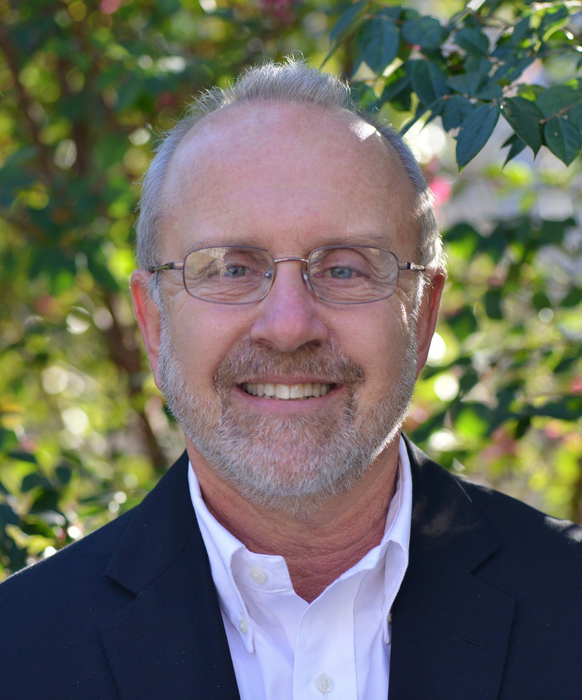CHAPEL HILL, NC – The distress of doctors and nurses working in hospitals during the COVID-19 pandemic has received much attention in news media and academic research, including their moral distress witnessing so many deaths at times when they could offer so little. Much less attention has been paid to the moral distress of clinicians working in other settings during the pandemic.

Credit: UNC School of Medicine
CHAPEL HILL, NC – The distress of doctors and nurses working in hospitals during the COVID-19 pandemic has received much attention in news media and academic research, including their moral distress witnessing so many deaths at times when they could offer so little. Much less attention has been paid to the moral distress of clinicians working in other settings during the pandemic.
Using data from a survey of more than 2,000 primary care, dental, and behavioral health clinicians who work with low income patients in safety net clinics, UNC School of Medicine’s Donald Pathman, MD, MPH, found that nearly 72 percent reported experiencing either mild or intense levels of moral distress during the first year of the pandemic due to limits on what they could do for their patients, witnessing their patients’ struggles and the challenges of their own work situations.
This analysis, published in BMJ Open, was conducted from data late in 2020 from practices in 20 states.
“Most people receive their health care in office settings, and many clinicians working there experienced moral distress from how the pandemic limited the care they could provide to patients and from witnessing the pandemic’s effects on patients and coworkers,” said lead author Donald Pathman, MD, MPH, a professor in the UNC Department of Family Medicine.
Moral distress was defined in the survey as when one witnesses or does things that contradict deeply held moral and ethical beliefs and expectations. “Moral distress is a concept developed to understand the consequences of disturbing situations nurses can experience in hospitals, but the concept of moral distress is likely just as useful in understanding a type of distress clinicians in all disciplines and work settings experience,” Pathman said.
Respondents in the survey were 2,073 clinicians who work in community health centers, mental health facilities and other types of safety net clinics that provide care to low income patients who face barriers to receiving care in the mainstream U.S. healthcare system. Many of these patients are also members of racial-ethnic minority groups.
Among respondents, 28.4% reported no moral distress related to work during the pandemic. But 44.8% reported “mild” or “uncomfortable” levels of moral distress, and 26.8 percent described their moral distress as “distressing,” “intense” or “worst possible.” The latter two groups combined are 71.6% of respondents, a substantial majority.
Many of this study’s office-based clinicians reported moral distress from not being able to provide care to all patients — think of the closed practices early in the pandemic that then reopened but limited care to only the sickest patients — and not being able to provide best care to their patients when care protocols changed to minimize infecting patients and staff within the office and virtual visits were required even when in-office, face-to-face visits were better for their patients.
Other respondents felt moral distress witnessing how the pandemic affected the health and lives of their patients, some of whom they had known for years. One study nurse practitioner in North Carolina noted moral distress watching how the pandemic “has impacted families in our clinic and feeling powerless to make meaningful change.”
Other clinicians were morally distressed when their coworkers’ health was jeopardized or they lost their jobs. Respondents sometimes regarded the hardships for coworkers as unavoidable during the pandemic but sometimes as due to their employers’ lack of concern for clinic staff’s wellbeing. One dentist reported: “All our manager and director seem to care about is making money and how many patients we see. I was having to balance being exposed to so many patients then going home to my family and potentially exposing them.”
Some respondents reported moral distress from patients, clinic staff and people in the community not wearing masks or following public health recommendations, as well as the politicization of the pandemic. As healthcare professionals, they knew these precautions worked, and when people did not follow them they knew others would be infected needlessly.
Social inequities and health disparities morally distressed some respondents, such as a respondent distressed from, “Seeing how my patient population has been disproportionately affected by illness and death because of socioeconomic issues.” Pathman noted that, “given the type of individual who chooses to provide healthcare in low income communities, it is not surprising that some would be morally distressed watching the pandemic worsen the health and lives of their patients because of their limited resources.”
The consequences of moral distress are concerning. The article notes that moral distress is known to cause burnout, compassion fatigue, disengagement from patients and job turnover for nurses in hospital settings and is likely to also do so for clinicians in safety net practices.
Co-authors of the article are Jeffrey Sonis, MD, MPH, an associate professor in the UNC Departments of Social Medicine and Family Medicine; Thomas E. Rauner at the Nebraska Division of Public Health; Kristina Alton, MD, at Vanderbilt University Medical Center; Anna S. Headlee at the University of Nebraska-Lincoln, and Jerry N. Harrison at New Mexico Health Resources.
Journal
BMJ Open
DOI
10.1136/bmjopen-2022-061369
Method of Research
Survey
Subject of Research
People
Article Title
Moral distress among clinicians working in US safety net practices during the COVID-19 pandemic: a mixed methods study
Article Publication Date
25-Aug-2022




